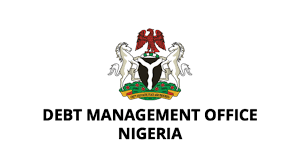The Nigerian government’s announcement of a significant reduction in its promissory note debt has been met with cautious optimism and calls for greater transparency. According to the Debt Management Office (DMO), the outstanding promissory note debt decreased by 15.6% between December 2024 and March 2025, falling from N1.542 trillion to N1.301 trillion. The DMO attributes this decline to the government’s efforts to settle verified obligations and boost stakeholder confidence. However, concerns remain regarding the veracity of this reduction and the potential implications for crucial capital projects and overall national development. Dr. Marcel Mbamalu, publisher of Prime Business Africa, has raised pertinent questions about the methods employed to achieve this reduction and whether it truly reflects improved fiscal discipline or masks deeper issues.
Promissory notes, essentially written promises to pay a specified sum of money at a future date, are frequently used by governments to settle outstanding obligations. They offer a mechanism to manage cash flow and provide creditors with a formal acknowledgment of the debt. While the DMO cites recent government efforts as the reason for the decline, the lack of detailed explanation regarding the specific measures taken raises concerns about the transparency of the process. Mbamalu’s questions highlight the need for a clear articulation of the government’s strategy in reducing the promissory note debt. Without such transparency, it is difficult to assess the true impact of the reduction and whether it represents a genuine step towards fiscal sustainability or a temporary reprieve achieved through potentially detrimental measures.
The context of this debt reduction is crucial. Nigeria’s total public debt has continued to climb, reaching approximately N149 trillion. Factors such as naira depreciation, escalating interest payments, and persistent reliance on borrowing contribute to this increasing debt burden. This backdrop underscores the importance of scrutinizing the promissory note debt reduction. While any decline in debt is generally welcomed, it becomes concerning when it occurs alongside a rising overall debt burden. This raises the question of whether the reduction in promissory notes is a result of prioritizing certain obligations over others, potentially at the expense of critical capital projects essential for long-term economic growth and social development.
Mbamalu emphasizes the delicate balance the government must strike between fiscal prudence and investment in crucial infrastructure and social programs. While managing debt is essential, it should not come at the cost of long-term development. He argues that achieving fiscal health while neglecting vital capital projects is a pyrrhic victory. The government must demonstrate that this debt reduction is not a short-sighted measure that sacrifices future prosperity for present gains. A clear and detailed explanation of the strategies employed to reduce the promissory note debt, including the potential impact on planned capital projects, is essential to assuage these concerns.
The call for greater transparency extends beyond a mere explanation of the government’s actions. Mbamalu advocates for an independent audit of the debt reduction process to verify the DMO’s claims and ensure the sustainability of the reported decline. This independent scrutiny would provide an objective assessment of the situation and bolster public trust in the government’s fiscal management. Furthermore, he emphasizes the importance of rigorous legislative oversight to hold the government accountable for its debt management practices. This oversight is essential to ensure that decisions regarding debt management are made in the best interests of the nation and not driven by short-term political considerations.
In conclusion, while the reported decline in Nigeria’s promissory note debt appears positive on the surface, the lack of transparency surrounding the process has raised legitimate concerns. The concurrent increase in the overall public debt burden underscores the need for a thorough examination of the methods employed to achieve this reduction. Dr. Mbamalu’s call for an independent audit and increased legislative oversight are crucial steps in ensuring accountability and verifying the sustainability of the reported decline. Ultimately, the Nigerian government must demonstrate that its pursuit of fiscal health does not compromise the nation’s long-term development goals and the well-being of its citizens. A balanced approach that prioritizes both fiscal responsibility and strategic investment in essential capital projects is crucial for Nigeria’s future prosperity.














